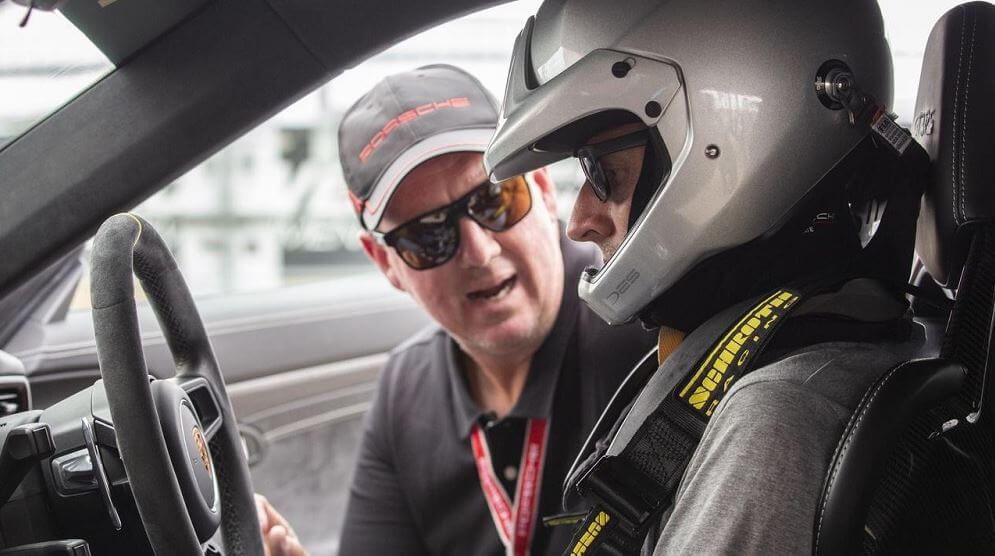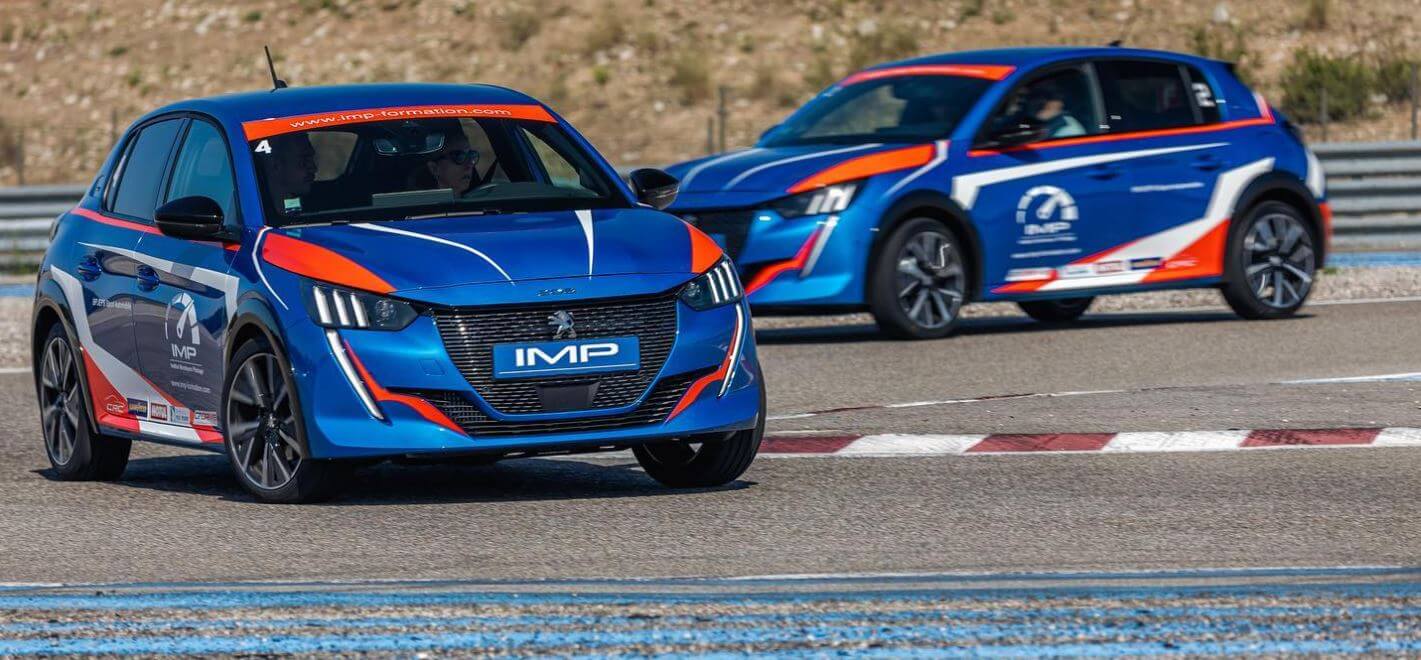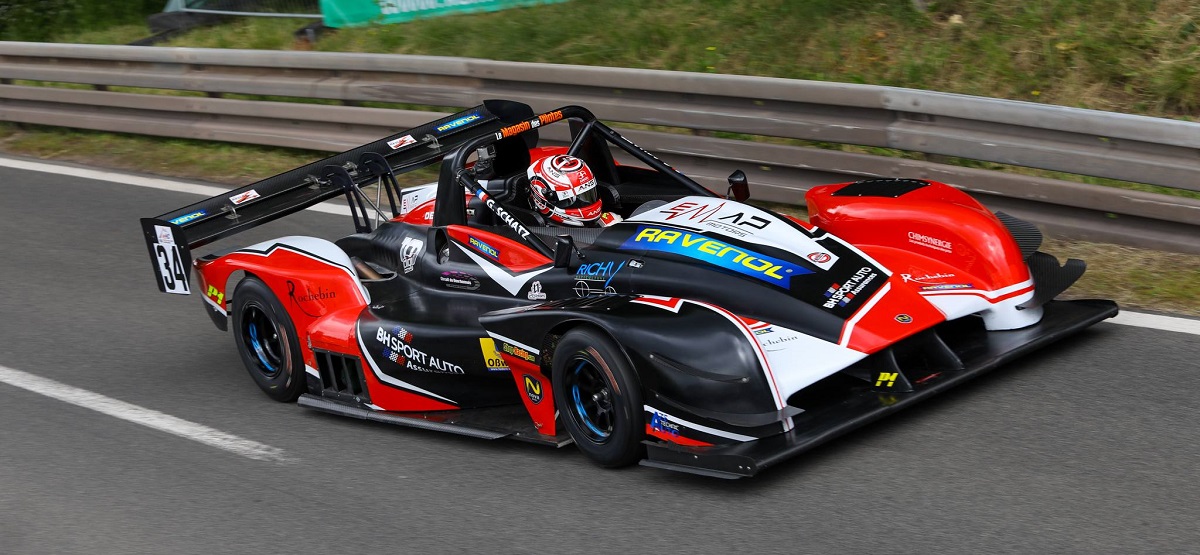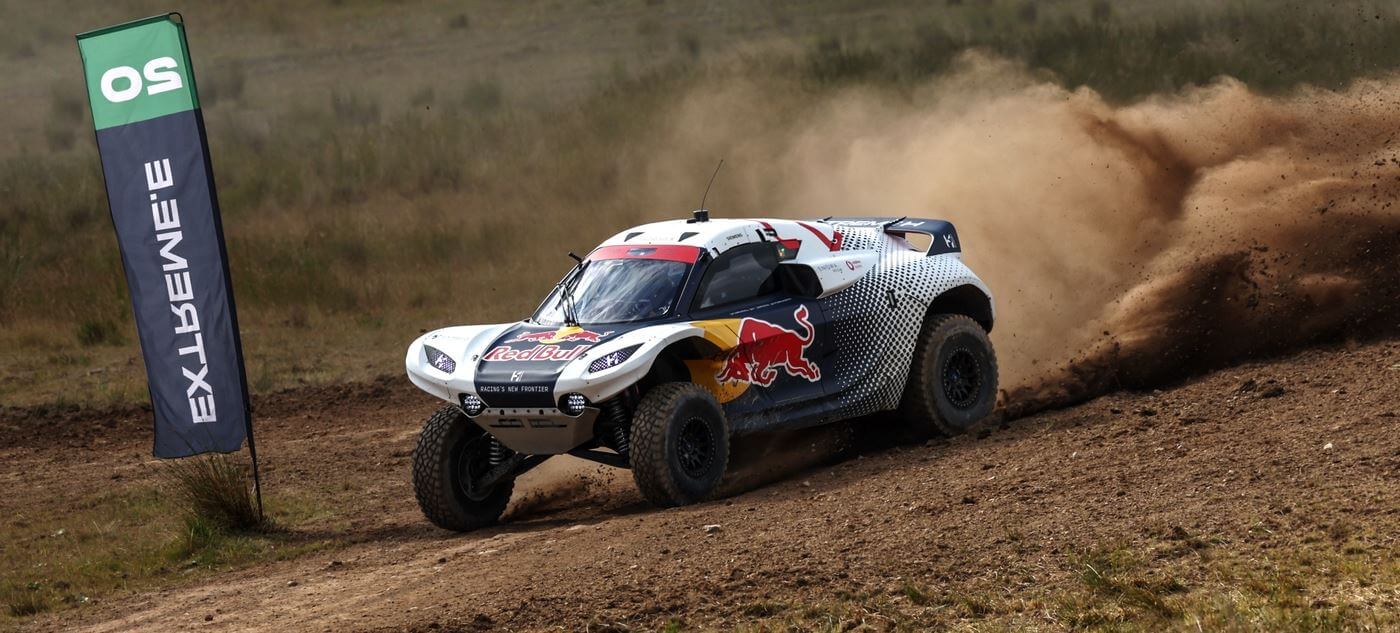How to become a driving instructor ?
By RobinB on 04 September 2024 MiscellaneousThe profession of a driving instructor, also known as an automotive instructor or driving coach, is an exciting career choice for those who have a driving license and wish to share their passion for sports driving by teaching advanced driving techniques.
Dreaming of spending your working days in the environment of motorsports? 😎
Let's explore together the steps to access this dynamic profession: from entry requirements to the necessary training, including career opportunities and salary prospects.
What is a Driving Instructor?
Wondering how to become a driving instructor? You are in the right place! 🙂
Before diving into the details, let's find out together what this profession involves and its working conditions.
The automotive driving instructor teaches future drivers the skills needed to master sports driving techniques and all the nuances of piloting. But their role doesn't stop there. They also impart knowledge about vehicle safety and control at high speeds, while nurturing a passion for motorsports. They work with beginners who want to learn about driving and with drivers looking to advance in competition, whether it is in karting, circuit racing, rallying, or off-road/4x4.
To practice this profession, specific training is required: the BPJEPS Sport Automobile. This state diploma of level IV (equivalent to a high school diploma) is essential for supervising and leading training sessions in the field of motorsports. It is the gateway to becoming an instructor in a training center.

Be careful not to confuse the BPJEPS Sport Automobile with the BEPECASER (Brevet for the Exercise of the Profession of Driving Instructor and Road Safety). The BPJEPS trains driving instructors for motorsports, while the BEPECASER is required to teach standard driving and road safety in driving schools. BEPECASER holders are more specialized in teaching safe driving on dual-control vehicles and preparing students to pass their driving theory test.
In France, several training centers offer the curriculum needed to obtain the BPJEPS Sport Automobile.
Which Training Center to Obtain the BPJEPS Diploma?
To become a driving instructor, it is necessary to obtain the BPJEPS Sport Automobile (Professional Certificate of Youth, Popular Education, and Sports), a diploma issued by the Ministry of Sports. This training, which lasts several months, validates the pedagogical and technical skills required to teach automotive driving. 👍
The training centers for the BPJEPS Sport Automobile are located in various regions of France, particularly in Auvergne-Rhône-Alpes, Grand Est, Provence-Alpes-Côte d'Azur, and Pays de la Loire. No training center is available in Île-de-France, which may require candidates residing in this region to relocate.
Here is a list of the main training centers and organizations in France where you can follow this training:
- ACTUA
Located 15 minutes from Lyon and near Saint-Exupéry airport, Actua welcomes you to the Lyon circuit, entirely dedicated to motorsports. With over 25 years of experience in the field, Actua offers a comprehensive course to obtain the BPJEPS, with a varied vehicle fleet, modern classrooms, and a specially equipped training complex.
📍 Address: ACTUA Organisation - Chemin de Fournéa - 69720 Saint-Laurent-de-Mure. - AFMA Sport (Auvergne Training for Driving Instructors)
Located on the legendary Circuit de Charade, the AFMA training center offers courses to become a state-certified instructor in various motorsport disciplines. In addition to the standard modules, additional specializations (UCC) are available, such as ice driving or quad biking.
📍 Address: Auvergne Training for Driving Instructors (AFMA) - 1 avenue Michel Ange, 63064 Clermont-Ferrand Cedex 1. - CMSA (Center for Motorsports Instructors)
Based at the GEOPARC circuit in Saint-Dié-des-Vosges, this modern training center has a 2.5 km track with 11 variations, a water-sprayed area, and a 30-hectare off-road area. The facilities also include several training rooms for optimal learning.
📍 Address: CMSA Center for Motorsports Instructors - Circuit GEOPARC, Rue Dieudonné Dubois, 88100 Saint-Dié-Des-Vosges. - IMP Training / GT DRIVE
Located on the prestigious Circuit Paul Ricard at Castellet, IMP Training offers courses on tracks adapted for training, including an F1 track. The center provides training by motorsport experts, with easy access thanks to nearby TGV stations and numerous accommodation options.
📍 Address: IMP Training - 557 AVENUE DE BERLIN, Parc d'Activités de Signes, 83870 Signes. - FFSA ACADEMY
Recognized as a major institution, the FFSA Academy in Le Mans offers comprehensive training with theoretical and practical sessions on renowned tracks, such as the Alain Prost track for karting and the Maison Blanche circuit for cars.
📍 Address: FFSA Academy - Technoparc des 24 heures, Chemin aux Bœufs, 72100 Le Mans.
Conditions for Access to Driving Instructor Training
Contrary to what one might think, it is not mandatory to have experience in automotive competition to apply for this training. The BPJEPS Sport Automobile is primarily a sports educator diploma, not a "driver" diploma (in accordance with Article L.212-1 of the Sports Code).
To access the training, here are the criteria and prerequisites to meet:
- Minimum age: Be of legal age.
- Driver's license: Hold a valid category B driver's license.
- Medical certificate: Provide a certificate of fitness for motorsports.
- First aid diploma: Hold the PSC1 (Civic Prevention and First Aid level 1, formerly named AFPS).
Candidates must also pass entrance tests that assess both their driving skills and teaching abilities. These typically include an evaluation of driving techniques, a timed on-track test, and an oral interview to assess motivation and candidate viability.
The on-track assessment is an eliminatory test. The selection process then allows to tailor the training according to the needs and level of the candidates.
How is the Training Content Organized?
The BPJEPS Sports Educator training, with a Sport Auto specialization, is structured around several competency units (UC), covering both the theory and practice of automotive driving. The courses include theoretical sessions in the classroom and practical exercises on the track, where future instructors learn specific techniques such as optimal trajectories, double clutching, and other essential skills to teach effectively.

The program totals 602 hours of theoretical courses and 658 hours of track practice. Organized in alternation, the training spans a period of 8 to 12 months, depending on the chosen school 📅
Furthermore, each training center can offer additional specific modules to further specialize in certain areas. Among these specializations, we mainly find:
- Track
- Karting
- Driving improvement
- Rally
- Off-road 4x4
- Ice (complementary capitalizable unit)
- Quad (complementary capitalizable unit)
Schools generally offer two mentions in the core curriculum, providing a more comprehensive program. This allows future instructors to diversify their skills and maximize their opportunities in various driving schools. These specializations can be a valuable asset when looking for a job.
New Technologies in Training
With the constant evolution of technologies, some training centers are now incorporating driving simulators into their BPJEPS programs. These simulators allow future instructors to enhance the precision of their driving techniques and prepare for complex on-track situations without real risks. The use of these modern technological tools is a major asset in training, offering a more immersive and safer experience for apprentice drivers.
What is the BPJEPS Sports Automobile Program?
The BPJEPS Sport Automobile specialization program is structured around four capitalizable units (UC) that combine theoretical and practical learning:
- UC1: Supervise all types of public in any place and any structure.
- UC2: Implement an animation project that fits within the structure's project.
- UC3: Conduct a session, an animation cycle, or a learning cycle in motorsports.
- UC4: Use the techniques of the chosen option to conduct a session, an animation cycle, or a learning cycle (options: driving improvement, karting, off-road).
Each UC is validated through various assessments, such as professional situations, technical demonstrations, oral presentations, and project submissions. These assessments are designed to evaluate both the practical skills and the pedagogical abilities of future instructors.
The national success rate for the BPJEPS Sport Auto is over 80%.
Is the BPJEPS Paid?
Yes, the BPJEPS Sport Auto training is paid, and the cost can be quite high. However, financing solutions are available and can, depending on your profile and professional situation, cover all or part of the fees. 😉
The cost of the training varies depending on the number of hours required to obtain the diploma. The theoretical part, for example, lasts 602 hours with an average rate of 23 to 25 € per hour, which represents a total price of around 15,000 €. It should be noted that these costs do not cover the fees for selection and placement tests, which generally range between 450 and 500 € each.
However, the practical part of the training takes place in companies during internships and alternation, which is free for the candidate. This means you will gain valuable practical experience without additional costs.
To maximize your chances of admission, some schools offer a 2-day preparation course for selection and placement tests. The cost of this course varies between 500 and 900 €. Additional registration fees may also apply.
It is important to note that prices are tax-free, as professional schools are exempt from VAT. However, you should plan for additional costs for accommodation and meals depending on your place of residence during the training.
To finance the BPJEPS, several options are available. The Personal Training Account (CPF), which replaced the Individual Training Leave (CIF) in 2019, allows employees to finance part of their training depending on their available credit. Other financial aids can be obtained through France Travail (formerly Pôle Emploi), DREETS, OPCOs, or even regional subsidies. 👍
Finally, some expenses related to your training can be deducted from your taxes. Check with your tax office for the procedures to follow.
What Jobs Can You Do with a BPJEPS?
Once graduated, a driving instructor can work in various environments, such as driving schools, racing circuits, or even as an independent worker. Career opportunities are varied: you can advance to roles in coordination, team management, or even the development of advanced training programs.
Depending on the mentions obtained during the training, you can also supervise karting sessions, which can facilitate obtaining a full-time permanent contract (CDI). Some companies in the sector operate over periods of 9 months, remaining inactive during the winter, and then offer fixed-term contracts (CDD) for this duration, either full-time or part-time.
The job of an instructor often involves activities on weekends, particularly to run driving courses for people who are not available during the week. It is also possible to participate in courses or stays during school holidays to supervise minors around activities such as quad biking or karting.
Here are some jobs you can pursue with a BPJEPS Sport Automobile specialization:
- Track Driving Instructor: Supervises driving and improvement courses on racing circuits.
- Karting Instructor: Conducts and supervises karting sessions for amateurs or competitors.
- Off-Road Driving Trainer (4x4): Specialist in off-road driving, teaching techniques on difficult terrains.
- Product Genius: Product specialist for automotive brands, often responsible for demonstrations and technical explanations.
- Sports Driving Coach: Assists individuals or professionals in improving their driving techniques.
- Single-Seater Instructor: Coach specializing in single-seater races, such as Formula Renault or Formula 3.
- Motorsports Events Coordinator: Organizes events, competitions, and courses related to motorsports.
- Test Driver: Tests and evaluates vehicles on behalf of manufacturers or driving schools.
- Road Safety and Sports Driving Consultant: Works with organizations to improve road safety or design training on sports driving.
- Ice Driving Instructor: Coaches for driving on ice and snow, often in mountains or adapted circuits.
Pursue and Expand Your Skills in Motorsports
After BPJEPS: Further Specialization with DEJEPS
Once the BPJEPS Sport Automobile is obtained, driving instructors can consider further training with the DEJEPS (State Diploma of Youth, Popular Education, and Sports). This higher-level diploma allows for the management of training sessions and competitions in motorsports, paving the way for management and coordination roles. This option is ideal for those looking to take on more responsibilities within training centers or driving schools.
Validation of Acquired Experience (VAE): An Alternative for Experienced Professionals
For those who already have significant experience in the field of automotive driving, it is possible to validate certain capitalizable units (UC) of the BPJEPS through the Validation of Acquired Experience (VAE). This option allows for the recognition of skills acquired in the field and reduces the duration of training needed to obtain the diploma. To be eligible for VAE, you must justify at least 2,400 hours of experience in automotive training over a period of 36 months.
Expected Salary: What is the Salary of a Driving Instructor?
The remuneration of automotive driving instructors varies depending on experience, status (generally independent rather than employed), workplace, and type of training provided. On average, a salaried instructor earns around 2,000 € per month on a permanent contract (CDI), but it is important to note that permanent contracts are very rare in this sector. Most instructors work freelance or on fixed-term contracts (CDD), and their income can increase based on experience, specific skills, and responsibilities, such as managing a team or creating training programs.
For an independent trainer, the remuneration is generally billed daily, around 270 €, depending on experience and type of training. While this rate may seem attractive, it is essential to consider that social contributions can significantly reduce net income. However, most employers offer additional benefits such as mileage reimbursement and coverage for meals and accommodation, which help offset some costs.
Some instructors can earn up to 800 € per day by offering private coaching sessions. For State Diploma (DE) graduates with a significant track record in competition, the remuneration can reach up to 1,500 € per day, depending on demand and reputation.
Moreover, working independently involves some uncertainty regarding the regularity of assignments, as driving centers call on these instructors primarily when there is a specific need.
It is crucial to understand that remuneration should not be the only motivation for entering this career. The BPJEPS Sport Automobile specialization allows you to combine theoretical and practical training, often alternating between school and workplace, providing you with substantial professional experience. Access to this training and profession is, above all, based on a genuine passion for automotive driving and a desire to pass on this passion to others.
Conclusion
In conclusion, becoming a driving instructor via the BPJEPS Sport Automobile specialization is a demanding but rewarding path for those who are passionate about motorsports and teaching. The training not only provides solid practical and pedagogical skills, but it also opens the door to numerous specializations and varied career opportunities, ranging from karting instruction to ice driving. The interest in this profession lies not only in remuneration but in the passion for sharing knowledge and contributing to the safety and skill improvement of amateur and professional drivers.





